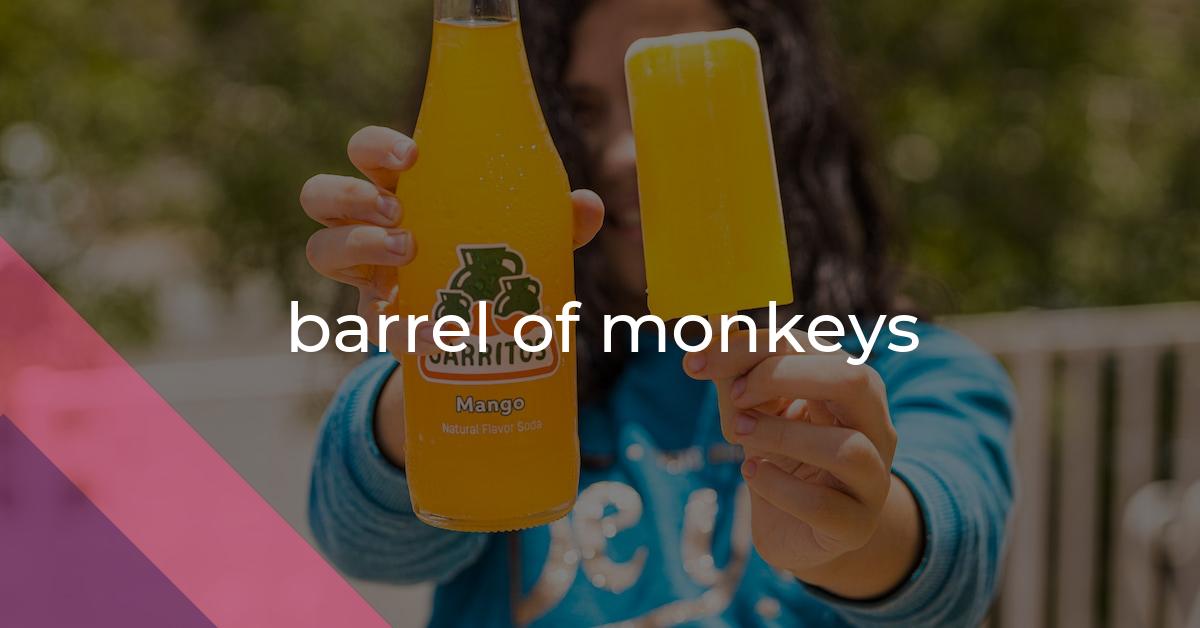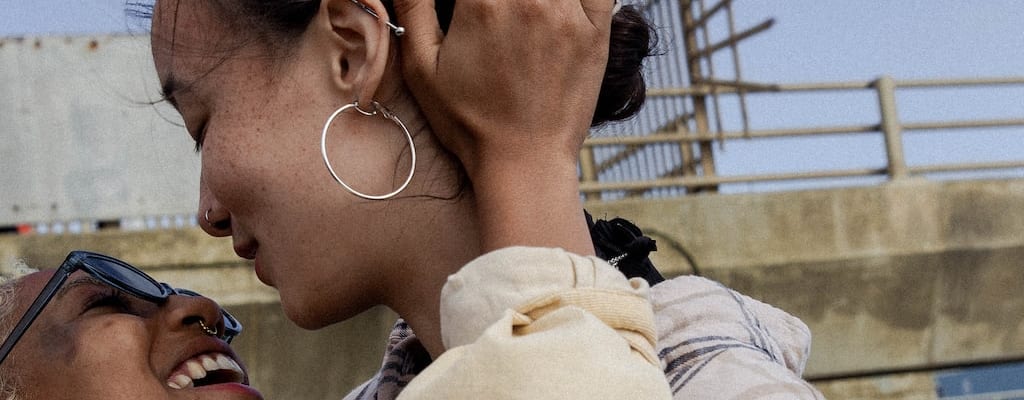barrel of monkeys: Idiom Meaning and Origin
What does ‘barrel of monkeys’ mean?
The idiom "barrel of monkeys" refers to a situation or activity that is extremely fun and enjoyable, much like the playful and lively behavior of monkeys when they are together in a barrel.

Idiom Explorer
The idiom "I'll be a monkey's uncle" is an expression used to convey surprise or disbelief. It suggests that the speaker never expected the situation or outcome to happen.
The idiom "have bats in one's belfry" means to be crazy or mentally unstable.
The idiom "have a whale of a time" means to enjoy oneself immensely or have a great time. It is often used to describe a very enjoyable and exciting experience.
The idiom "have a ball" means to have a great time or enjoy oneself immensely.
The idiom "happy as a pig in shit" means to be extremely happy or content in a situation or environment that may be considered dirty or unappealing by others.
The idiom "happy as a pig in mud" means being extremely content and satisfied in a situation or environment.
The idiom "go wild" means to become extremely excited or enthusiastic, often losing control of one's behavior or actions.
The idiom "good drunk" refers to someone who is pleasant and enjoyable to be around when they are intoxicated.
The idiom "go bananas" means to become extremely excited, agitated, or irrational. It is often used to describe someone losing control of their emotions or behaving in a wild and unpredictable manner.
The idiom "funny stuff" refers to something that is amusing, quirky, or strange. It is often used to describe situations, actions, or remarks that are humorous or out of the ordinary.
Hidden Origins
The idiom "barrel of monkeys" is an interesting phrase that has its origins rooted in American English. It is a colorful and playful expression that is commonly used to describe a situation or activity that is extremely fun, enjoyable, or entertaining. The phrase suggests a level of excitement and amusement that is similar to the chaotic and uproarious behavior one might expect from a barrel full of monkeys. While it has become a familiar part of the English language, the exact etymology of the idiom remains somewhat elusive.
One fact known about the idiom is that it first gained popularity in the mid-20th century in the United States. The phrase became widely recognized and used in everyday conversation during this time, quickly gaining a reputation for representing a great deal of fun and delight. It is believed that the idiom originated as a metaphorical way to convey a high level of enjoyment, using the image of a barrel filled with energetic and mischievous monkeys as a vivid comparison.
Another noteworthy fact about the idiom is its association with a popular children's game called "Barrel of Monkeys." This game, invented in the 1960s by Lakeside Industries, consists of a plastic barrel filled with small plastic monkeys. The objective of the game is to link the monkeys together by their arms, creating a chain of monkeys that dangles from the barrel. The idiom "barrel of monkeys" likely gained further recognition and appeal due to the popularity of this game, as it provided a tangible and visual reference point for the phrase.
The idioms "barrel of laughs," "bundle of laughs," and "cheeky monkey" are closely related to the idiom "barrel of monkeys." These idioms share a common theme of amusement and entertainment. The phrase "barrel of laughs" is used to describe something or someone that is a source of great laughter and enjoyment. It is often used to refer to a person who has a lively and humorous personality. Similarly, the idiom "bundle of laughs" conveys a similar meaning, referring to something or someone that is incredibly amusing and entertaining.
The idioms "cheeky monkey" and "barrel of monkeys" both use the imagery of monkeys to communicate a mischievous and playful nature. The phrase "cheeky monkey" is often used to describe someone, typically a child, who is behaving in a teasing or impish manner. It conveys a sense of playful naughtiness, similar to the behavior that one might expect from a barrel full of monkeys. In this way, the idioms "cheeky monkey" and "barrel of monkeys" share a common association with mischievousness and lightheartedness.
The idiom "barrel of monkeys" has also been used in various cultural contexts, such as literature, films, and song lyrics. For instance, the phrase appears in the lyrics of the famous song "Barrel of Monkeys" by country music artist Johnny Bush. The song humorously describes a chaotic and enjoyable love affair, using the idiom as a metaphorical representation of the relationship. This illustration of the idiom in popular culture further emphasizes its association with excitement, pleasure, and an element of disorder.
The idiom "barrel of monkeys" is a lively expression that captures the essence of sheer enjoyment and fun. While its precise origins and evolution remain somewhat mysterious, the idiom has become a well-known and widely used phrase in American English. Its association with a popular children's game and its appearances in various cultural contexts have contributed to its enduring popularity and recognition. The idiom serves as a vivid representation of exuberance, amusement, and the joy of engaging in lively and entertaining activities. While its meaning is relatively straightforward, the idiom holds a certain whimsical quality that continues to intrigue and delight both speakers and listeners alike.
Example usage
1. The children were having so much fun at the birthday party - they were running around like a barrel of monkeys.
2. We had a barrel of monkeys at the park yesterday - the kids were giggling and playing games together.
3. The comedy show was a barrel of monkeys - everyone in the audience was laughing non-stop.
More "Amusement" idioms
We missed the mark - nothing found.



